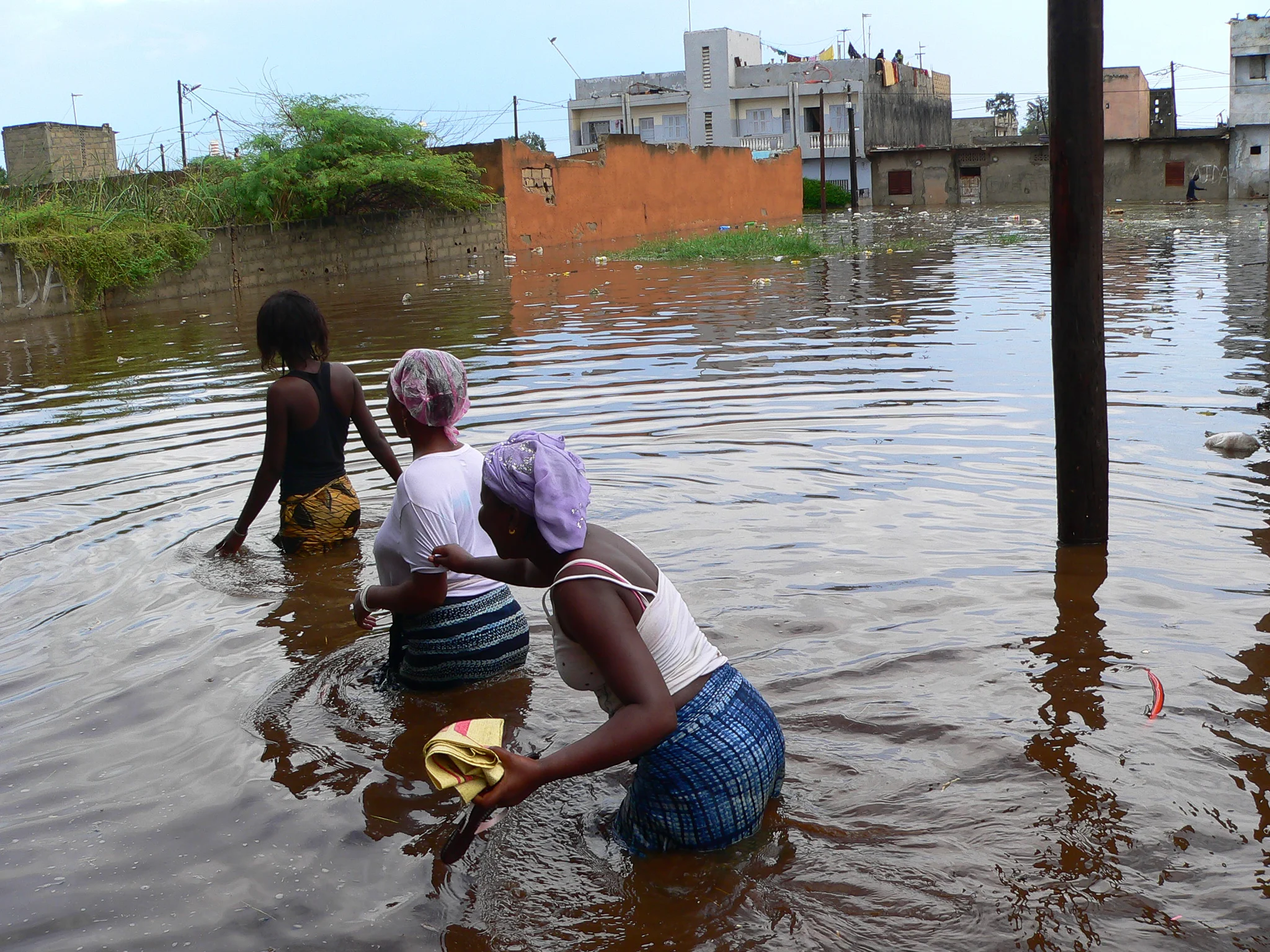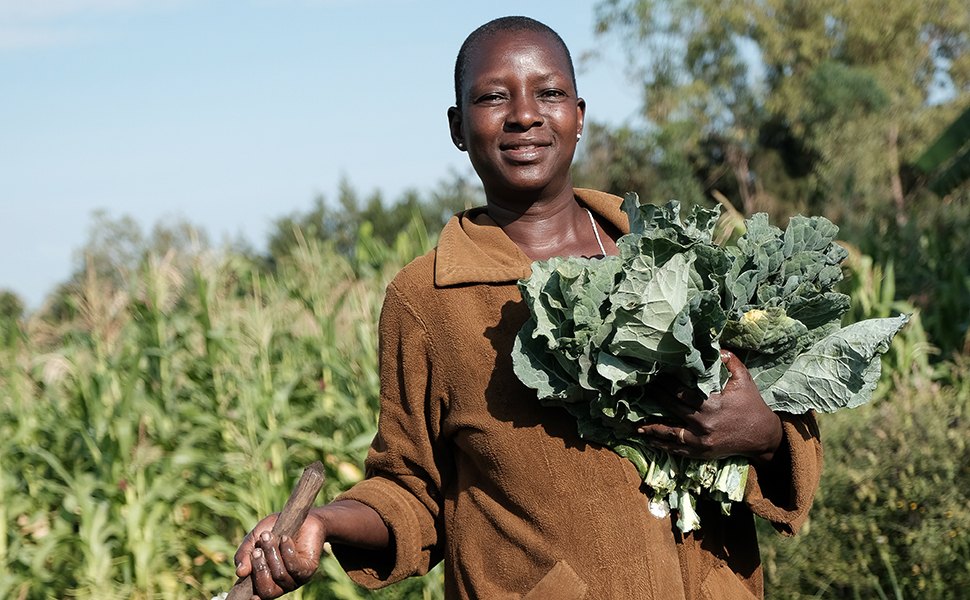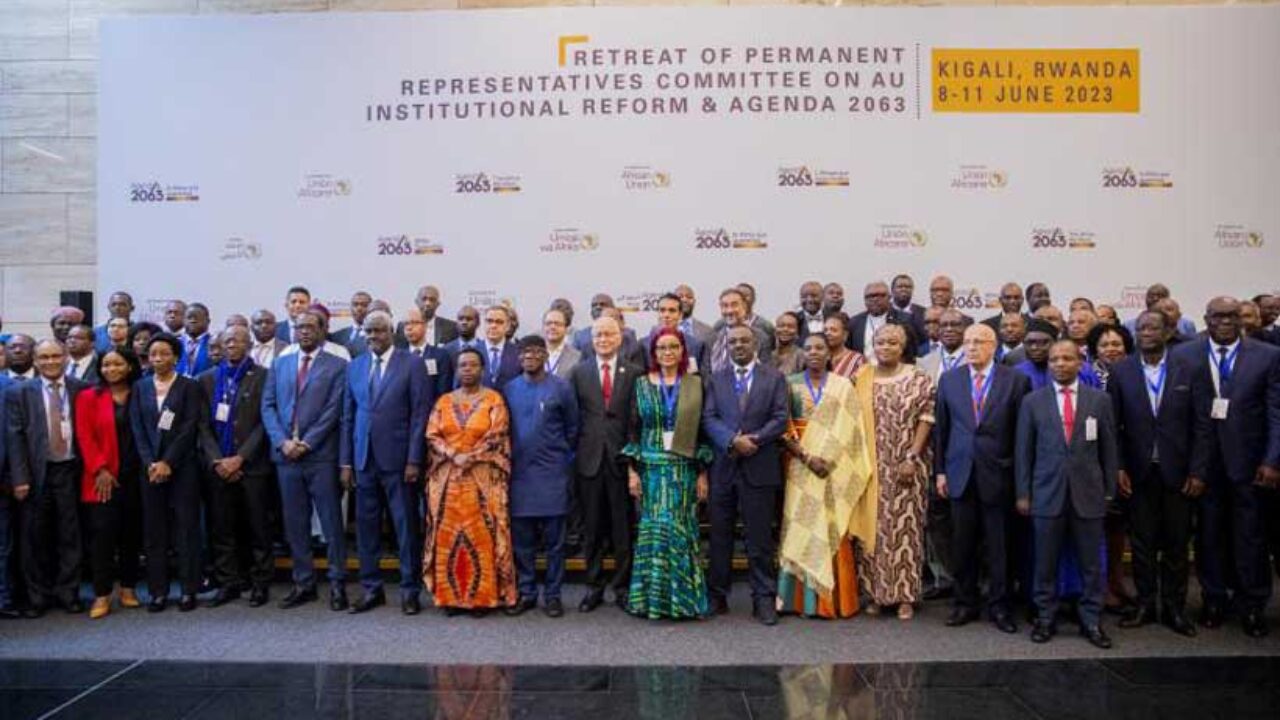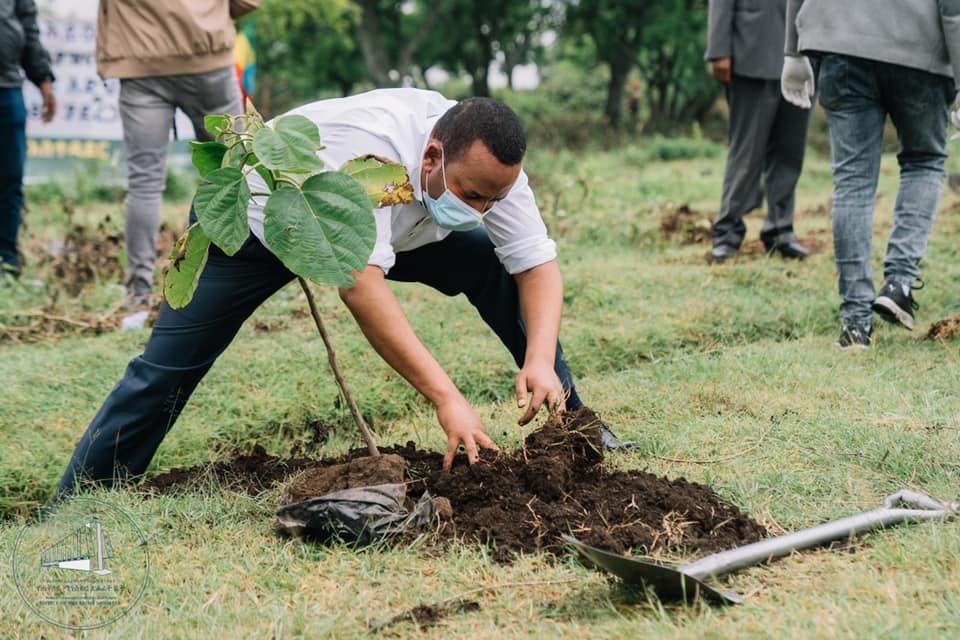Climate Change In Africa - Challenges And Solutions
Climate change is a global crisis that affects every corner of our planet, but its impacts are not evenly distributed. Africa, with its unique vulnerabilities and limited resources, faces some of the most severe consequences of climate change. In this article, we will delve into the various aspects of climate change in Africa, exploring its causes, effects, and potential solutions.
Understanding The Causes
Greenhouse Gas Emissions
Greenhouse gas emissions, primarily carbon dioxide (CO2), methane (CH4), and nitrous oxide (N2O), are at the heart of the climate change crisis. While Africa's contribution to global emissions is relatively small compared to industrialized nations, it is not immune to the repercussions of these emissions. Here's a more in-depth look at the issue:
- Global Impact: The industrialized world, driven by the burning of fossil fuels for energy and transportation, is responsible for the lion's share of global greenhouse gas emissions. However, the cumulative effect of these emissions is a global problem. Africa, like all other continents, is feeling the consequences, despite having a minimal direct hand in causing them.
- Extreme Weather Events: African nations experience a range of climate-related disasters, including more frequent and severe droughts, floods, cyclones, and heatwaves. These events disrupt lives, displace communities, and hamper economic growth, perpetuating a cycle of poverty.
- Rising Temperatures: As global temperatures rise due to the greenhouse effect, Africa faces its own unique set of challenges. The increased heat affects crop yields, water availability, and contributes to the spread of diseases, which further compounds existing challenges in healthand agriculture.
Deforestation And Land Use
Deforestation and changes in land use practices have far-reaching consequences for both Africa and the global climate. Here's a closer examination of these issues:
- Carbon Sink Depletion: Forests act as crucial carbon sinks, absorbing CO2 from the atmosphere and mitigating the effects of climate change. Unfortunately, Africa has witnessed substantial deforestation due to factors like logging, agricultural expansion, and urbanization. This loss of forest cover reduces the planet's ability to offset carbon emissions.
- Soil Erosion and Desertification: Unsustainable land practices, such as overgrazing and poor land management, lead to soil erosion and desertification. This further exacerbates the climate crisis by releasing stored carbon, reducing agricultural productivity, and increasing the vulnerability of communities.
- Biodiversity Loss: Deforestation also threatens the rich biodiversity of Africa, impacting ecosystems and diminishing resilience to climate change. Unique species and habitats are under threat, making it even more challenging to adapt to the changing climate.
Energy Production
Africa's energy needs are rapidly growing as the continent undergoes industrialization and urbanization. However, the predominant reliance on fossil fuels for energy production is a significant contributor to climate change. Here are some key aspects to consider:
- Fossil Fuel Dependency: Coal, oil, and natural gas remain the primary sources of energy in many African countries. These sources release substantial greenhouse gas emissions when burned, contributing to global warming. Reducing this dependency is essential to mitigating climate change.
- Energy Access and Development: Africa faces a dilemma as it strives to provide access to modern energy for its growing population while also combating climate change. Sustainable energy solutions, such as renewables (solar, wind, and hydropower), offer an opportunity to meet energy demands without exacerbating the climate crisis.
- International Assistance: To transition to cleaner energy sources, African nations require support from the international community in the form of technology transfer, financial aid, and capacity building. This assistance can help accelerate the adoption of renewable energy technologies and reduce emissions from the energy sector.
Climate Change And Sustainable Development In Africa
Climate change poses a formidable threat to Africa's ability to achieve the Sustainable Development Goals (SDGs). The 2018 report by the Intergovernmental Panel on Climate Change(IPCC) underscored the dire consequences of a global temperature increase exceeding 1.5°C, with Africa being disproportionately affected. Here's a deeper exploration of the intricate relationship between climate change and sustainable development in Africa:
Disruption Of Agricultural Systems
Food Security: Agriculture is a cornerstone of many African economies and livelihoods, providing employment and sustenance to a significant portion of the population. Climate change, however, disrupts rainfall patterns, increases the frequency of droughts and floods, and intensifies heatwaves, all of which can lead to reduced crop yields and food insecurity. The attainment of SDG 2 (Zero Hunger) becomes increasingly challenging in the face of these climate-induced agricultural challenges.
Water Stress And SDG 6
Water Scarcity: Africa is experiencing growing water stress due to climate change, with changing precipitation patterns and increased evaporation. This impacts access to clean water, which is critical for health, sanitation, and achieving SDG 6 (Clean Water and Sanitation). Competition over dwindling water resources can also exacerbate conflicts and hinder socio-economic development.
Health Impacts And SDG 3
Healthcare Burden: Rising temperatures can lead to the spread of vector-borne diseases like malaria and dengue fever, posing a significant health threat to communities across Africa. Health systems are strained by the increased demand for medical care and resources, undermining efforts to achieve SDG 3 (Good Health and Well-being).
SDG 13 And Climate Action
Adaptation and Mitigation: The IPCC report emphasized the need for urgent and substantial reductions in greenhouse gas emissions to limit global warming to 1.5°C. This aligns with SDG 13 (Climate Action), which calls for comprehensive efforts to combat climate change and its impacts. African countries are striving to balance their development needs with climate action commitments, requiring innovative solutions and international support.
SDG 7 And Energy Access
Energy Transition: The energy sector plays a crucial role in both contributing to and mitigating climate change. While many African nations are seeking to expand energy access, there is an opportunity to leapfrog carbon-intensive energy sources and invest in renewable energy technologies. This aligns with SDG 7 (Affordable and Clean Energy) and promotes sustainable development.
Climate-Induced Migration And SDG 10
Social Inequality: Climate change can exacerbate existing vulnerabilities, particularly for marginalized communities. As climate impacts intensify, displacement and migration may become more common, potentially leading to conflicts over resources and disrupting social cohesion. These challenges are linked to SDG 10 (Reduced Inequality), as they often affect the most vulnerable disproportionately.
Financing For Sustainable Development
Economic Implications: Achieving the SDGs in Africarequires substantial investments in infrastructure, education, healthcare, and poverty alleviation. However, climate change adaptation and mitigation efforts also demand significant resources. Balancing these financial demands while ensuring that both development and climate goals are met requires innovative financing mechanisms and international cooperation.
Policy Considerations For Climate Resilience
In the face of the growing threat of climate change in Africa, policymakers are faced with the critical task of crafting effective policies to mitigate its impact and ensure sustainable development. Here, we delve into some key policy considerations that can play a pivotal role in addressing climate change challenges in Africa:
Building Buffers For Climate Shocks
Policymakers in African countries must prioritize the establishment of buffers to respond swiftly and effectively to climate shocks. These buffers can be developed through:
- Domestic Revenues: Increasing domestic revenue generation can provide governments with the financial resources needed to invest in climate resilience projects and respond to climate-related emergencies.
- Lowering Public Debt and Deficits: High levels of public debt can limit a government's ability to allocate funds to climate initiatives. Therefore, prudent fiscal policies that lower debt levels and budget deficits are crucial.
- Higher International Reserves: Maintaining healthy international reserves can help countries weather the economic impact of climate disasters and reduce the need for external financial assistance.
Research has shown that countries with these fiscal buffers recover more swiftly from extreme weather events, minimizing long-term economic damage and facilitating a faster return to sustainable development.
Strengthening Social Safety Nets
Social safety nets are essential tools for protecting vulnerable populations from the adverse impacts of climate change. Policymakers can achieve this by:
- Expanding Access: Ensuring that a broad segment of the population can access social safety nets, including cash transfer programs and food assistance, is crucial.
- Targeting Vulnerable Groups: Identifying and prioritizing the most vulnerable groups, such as low-income families and marginalized communities, is essential to effectively allocate resources and support.
- Resilience Building: Incorporating climate resilience into social safety net programs can help communities better withstand climate-related shocks.
These measures not only alleviate immediate suffering but also contribute to long-term climate resilience by empowering communities to withstand and recover from climate disasters.
Leveraging Insurance Schemes
Insurance schemes can provide valuable financial support in the aftermath of catastrophic climate events. Policymakers should consider:
- Insurance Partnerships: Collaborating with international insurance providers to create affordable insurance schemes that cover climate-related damages can reduce the financial burden on governments and affected individuals.
- Risk Assessment: Implementing robust risk assessment mechanisms to determine insurance premiums and payouts accurately is crucial for the effectiveness of such schemes.
By integrating insurance as a financial tool for disaster recovery, African countries can better manage the financial aftermath of climate-induced disasters.
Investing In Climate-Resilient Infrastructure
To build long-term climate resilience, African countries must prioritize infrastructure investments that can withstand the impacts of climate change. Key policy considerations include:
- Climate-Resilient Designs: Ensuring that infrastructure projects incorporate climate-resilient designs and technologies to minimize damage from extreme weather events.
- Adaptive Capacity: Building infrastructure that can adapt to changing climate conditions, such as resilient transportation systems and flood defenses, is essential.
- Renewable Energy: Shifting towards renewable energy sources, such as solar and wind power, can reduce emissions and enhance climate resilience.
Investing in climate-resilient infrastructure not only mitigates the risks associated with climate change but also fosters sustainable economic development.
African policymakers face the urgent task of addressing climate change's far-reaching implications. Implementing these policy considerations can help build resilience, safeguard vulnerable populations, and ensure that the continent progresses toward sustainable development. To learn more about the development efforts in African countries, you can visit Urban Kenyans.
The Role Of Education And Awareness
Education and awareness play a pivotal role in addressing climate change in Africa. As the continent grapples with the increasing impacts of a changing climate, focusing on education and leveraging indigenous wisdom can be transformative in the following ways:
Education For Sustainability
Empowering The Youth
One of the most powerful tools for addressing climate change in Africa is education, particularly when it comes to the younger generation. Here's why it's paramount:
- Raising Awareness: Education serves as a means to raise awareness about climate change, its causes, and its far-reaching consequences. It equips individuals with the knowledge needed to comprehend the urgency of the issue.
- Behavioral Change: Educating the youth fosters a sense of responsibility and empowers them to take proactive steps towards mitigating climate change. This includes adopting sustainable practices, reducing carbon footprints, and promoting environmentally conscious behaviors.
- Advocacy and Leadership: Informed young individuals are more likely to become climate advocates and leaders in their communities. They can influence decision-makers and promote policies that prioritize climate action.
- Innovation and Solutions: Education nurtures creativity and problem-solving skills. When young minds are well-informed about climate challenges, they are more likely to develop innovative solutions and technologies to address them.
To realize these benefits, educational institutions and community organizations in Africa should prioritize climate change education as an integral part of their curriculum and outreach programs. By doing so, they contribute to the formation of a generation that actively engages with climate change issues and seeks solutions.
Local Knowledge And Indigenous Wisdom
Leveraging Centuries Of Wisdom
Local knowledge and indigenous wisdom have been instrumental in helping communities adapt to changing climates for centuries. Recognizing and integrating these practices into climate change mitigation and adaptation efforts can offer valuable insights and enhance resilience in African communities:
- Ecosystem Stewardship: Indigenous communities often have an intimate understanding of their local ecosystems, including which plants are drought-resistant, where to find water during dry spells, and how to protect biodiversity. Incorporating this knowledge can help protect ecosystems and enhance climate resilience.
- Traditional Agriculture: Indigenous agricultural practices often involve sustainable techniques like crop rotation and agroforestry. These methods can contribute to food security and climate adaptation.
- Community Cohesion: Indigenous cultures often prioritize community well-being over individual gain. Strengthening community bonds and cooperation can enhance resilience in the face of climate challenges.
- Local Adaptation Strategies: Indigenous communities have developed a range of climate adaptation strategies, such as building resilient housing and water management systems. These strategies can serve as valuable models for broader climate resilience efforts.
Incorporating local knowledge and indigenous wisdom into climate policies and projects not only respects cultural diversity but also harnesses the wealth of experience accumulated over generations. This approach fosters sustainable and context-specific solutions that can be more effective in the fight against climate change.
Addressing Socioeconomic Impacts
Climate-Resilient Agriculture
Agriculture is a lifeline for many Africans, but it is severely affected by climate change. Promoting climate-resilient farming techniques, drought-resistant crops, and efficient water management can help safeguard food security and livelihoods.
Economic Diversification
Overreliance on sectors vulnerable to climate change, such as agriculture and fishing, can be risky. Encouraging economic diversification by investing in industries less susceptible to climate impacts can create jobs and reduce vulnerability.
Social Safety Nets
Governments and international organizations should establish social safety nets to support vulnerable populations during climate-related crises. Adequate infrastructure for disaster response and recovery is essential to minimize human suffering.
Case Studies Of African Climate Initiatives
Ethiopia's Green Legacy Initiative
Ethiopia's Green Legacy Initiative is a remarkable example of reforestation efforts. The country set a world record by planting over 350 million trees in a single day in 2019. Such initiatives contribute significantly to carbon sequestration and ecosystem restoration.
Solar Power Revolution In Morocco
Morocco is leading the way in solar energy development with its Noor Solar Power Complex. This renewable energy project not only reduces carbon emissions but also provides electricity to millions of people.
Community-Based Adaptation In Kenya
Kenya has implemented community-based adaptation programs that empower local communities to develop their climate resilience strategies. These initiatives include water harvesting techniques, sustainable agriculture, and disaster preparedness.
People Also Ask
How Is Africa Being Affected By Climate Change?
Africa is being significantly affected by climate change in various ways:
- Increased Temperatures: Rising temperatures are leading to more frequent and prolonged heatwaves across the continent. This affects agriculture, water resources, and human health.
- Droughts: Africa is experiencing more intense and prolonged droughts, which have devastating impacts on crop yields, food security, and water availability.
- Floods: On the flip side, some regions of Africa are witnessing increased rainfall and flooding, causing displacement of communities, damage to infrastructure, and loss of lives.
- Sea Level Rise: Coastal regions in Africa are vulnerable to sea level rise, which can lead to saltwater intrusion, displacement of communities, and erosion of valuable coastal land.
- Ecosystem Disruption: Climate change is disrupting ecosystems and threatening biodiversity. This affects not only the environment but also local livelihoods and food sources.
- Health Impacts: Climate change contributes to the spread of diseases like malaria and dengue fever, putting additional strain on healthcare systems.
Why Will Africa Suffer The Most From Climate Change?
Africa is particularly vulnerable to the impacts of climate change for several reasons:
- Limited Adaptive Capacity: Many African countries have limited resources and infrastructure to adapt to the challenges posed by climate change. This includes inadequate healthcare, water supply, and disaster preparedness.
- Agricultural Dependence: A large portion of Africa's population relies on rain-fed agriculture, making them highly susceptible to changes in precipitation patterns and droughts.
- Extreme Weather Events: Africa is prone to a range of extreme weather events, including cyclones, floods, and heatwaves. Climate change exacerbates the intensity and frequency of these events.
- Poverty and Inequality: High levels of poverty and income inequality in Africa mean that vulnerable populations have fewer resources to cope with the impacts of climate change.
- Coastal Vulnerability: Many African nations have extensive coastlines, making them vulnerable to sea level rise, storm surges, and coastal erosion.
Which Country Is Most Affected By Climate Change?
It is challenging to pinpoint a single country as the most affected by climate change, as the impacts vary depending on geographical location, local vulnerabilities, and the severity of climate change-related events. However, some countries are particularly vulnerable due to their geographical features and socio-economic conditions. These include:
- Small Island Nations: Countries like Tuvalu, the Maldives, and Kiribati are extremely vulnerable to sea level rise and may face existential threats if global temperatures continue to rise.
- African Nations: Several African countries, such as Somalia, Sudan, and South Sudan, face a combination of challenges, including droughts, conflicts over resources, and limited adaptive capacity.
- Low-Lying Coastal Countries: Bangladesh, with its low-lying geography and dense population, is highly vulnerable to sea level rise and tropical cyclones.
- Arctic Nations: Arctic countries like Greenland and Canada are witnessing rapid temperature increases, leading to melting ice, permafrost thaw, and changes in ecosystems.
Conclusion
Climate change in Africa is a multifaceted challenge that requires a comprehensive and collaborative approach. It affects not only the environment but also the socioeconomic well-being of millions of people. By embracing sustainable practices, investing in renewable energy, and fostering education and awareness, African nations can mitigate the impacts of climate change and adapt to the challenges it presents.
The international community must play a vital role by supporting African countries in their climate efforts through financial aid, technology transfer, and capacity-building initiatives. Together, we can work towards a more sustainable and equitable future for Africa and the entire world. Addressing climate change is not just an obligation but an opportunity to create a better and more resilient planet for current and future generations.



